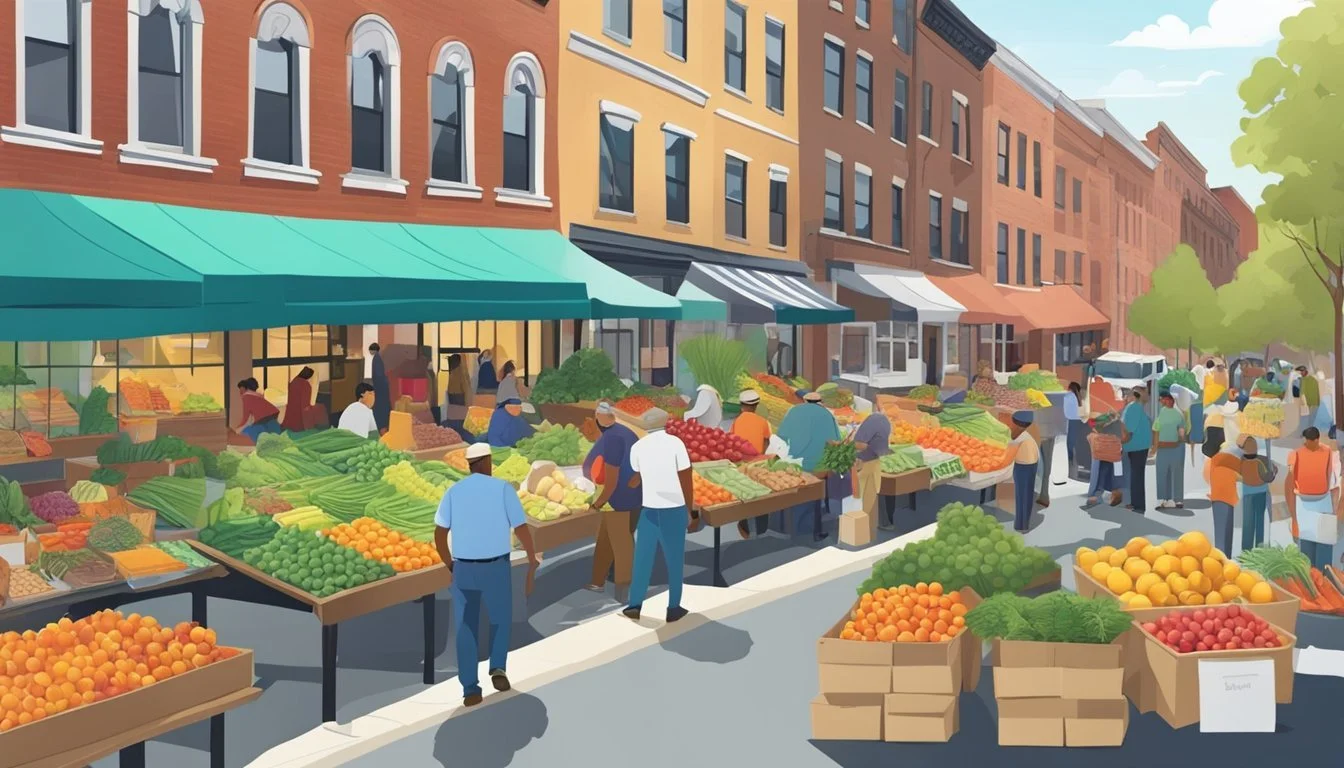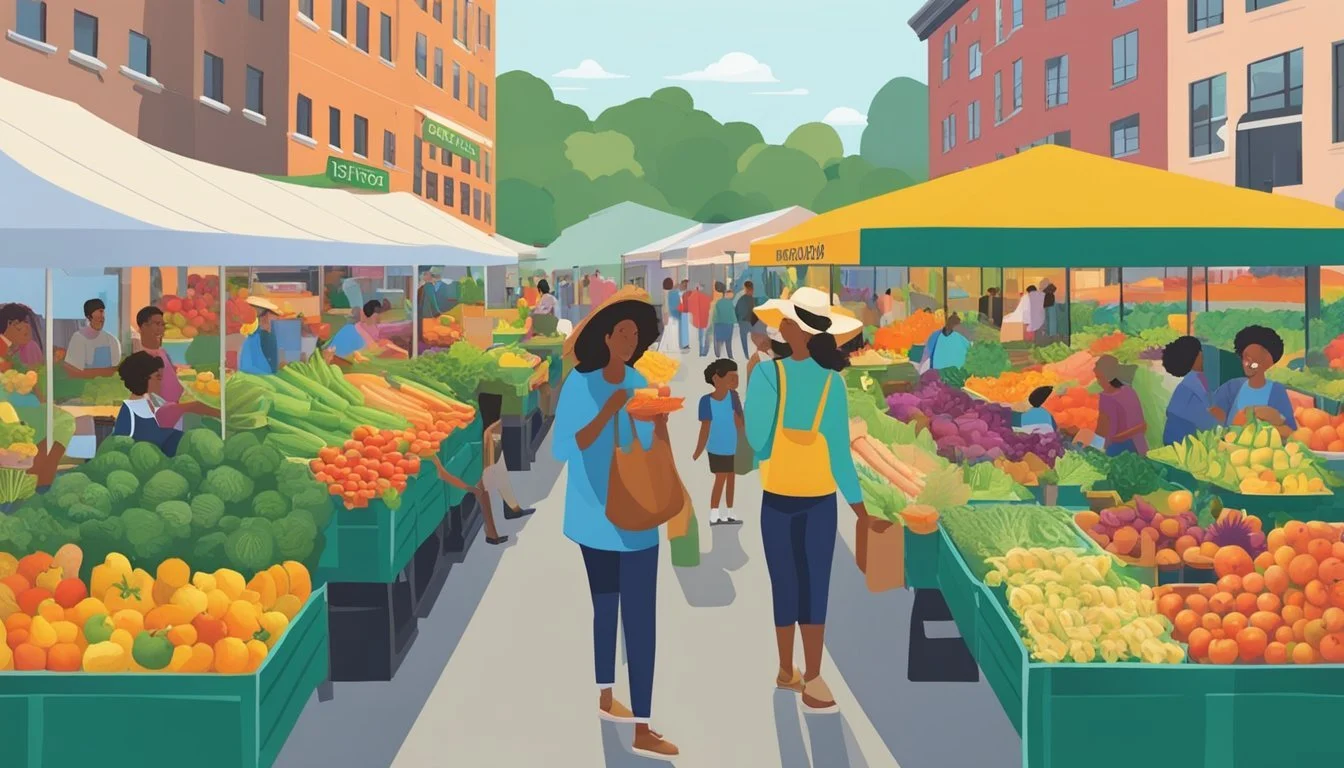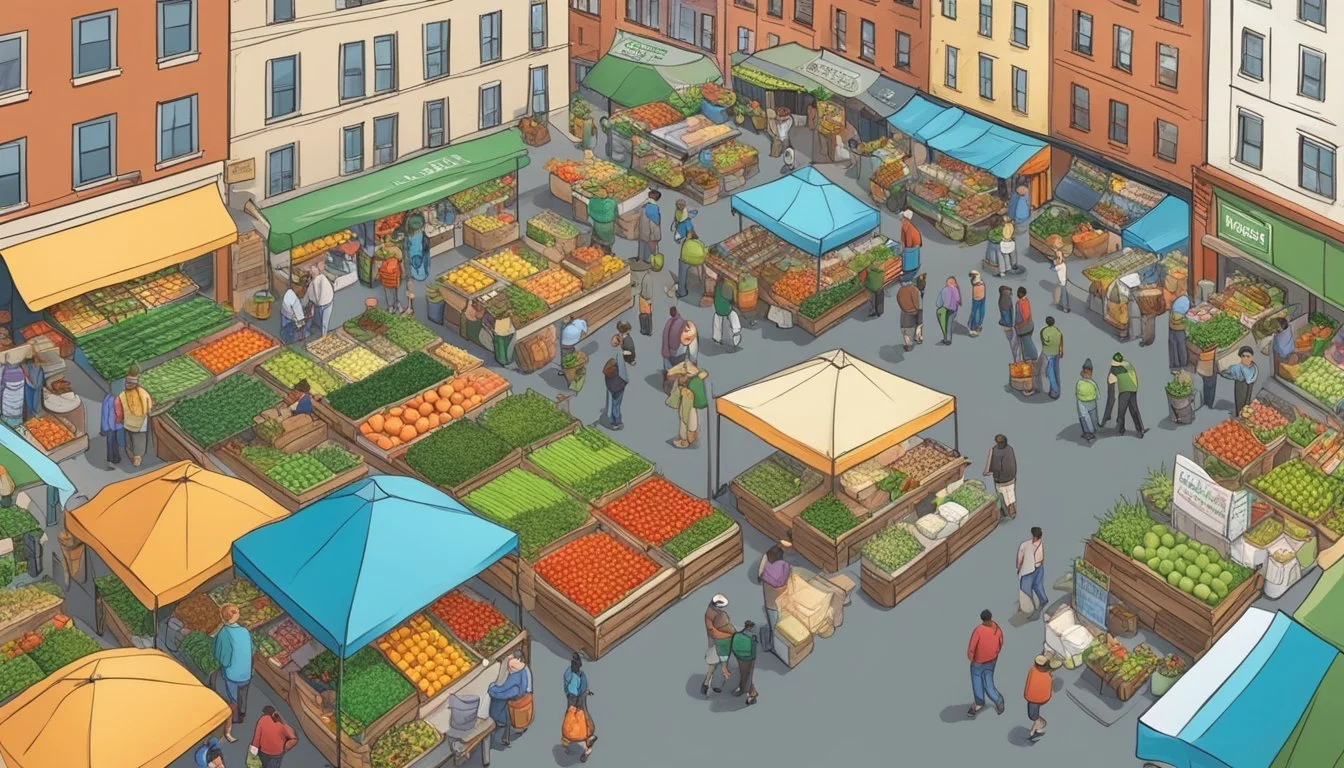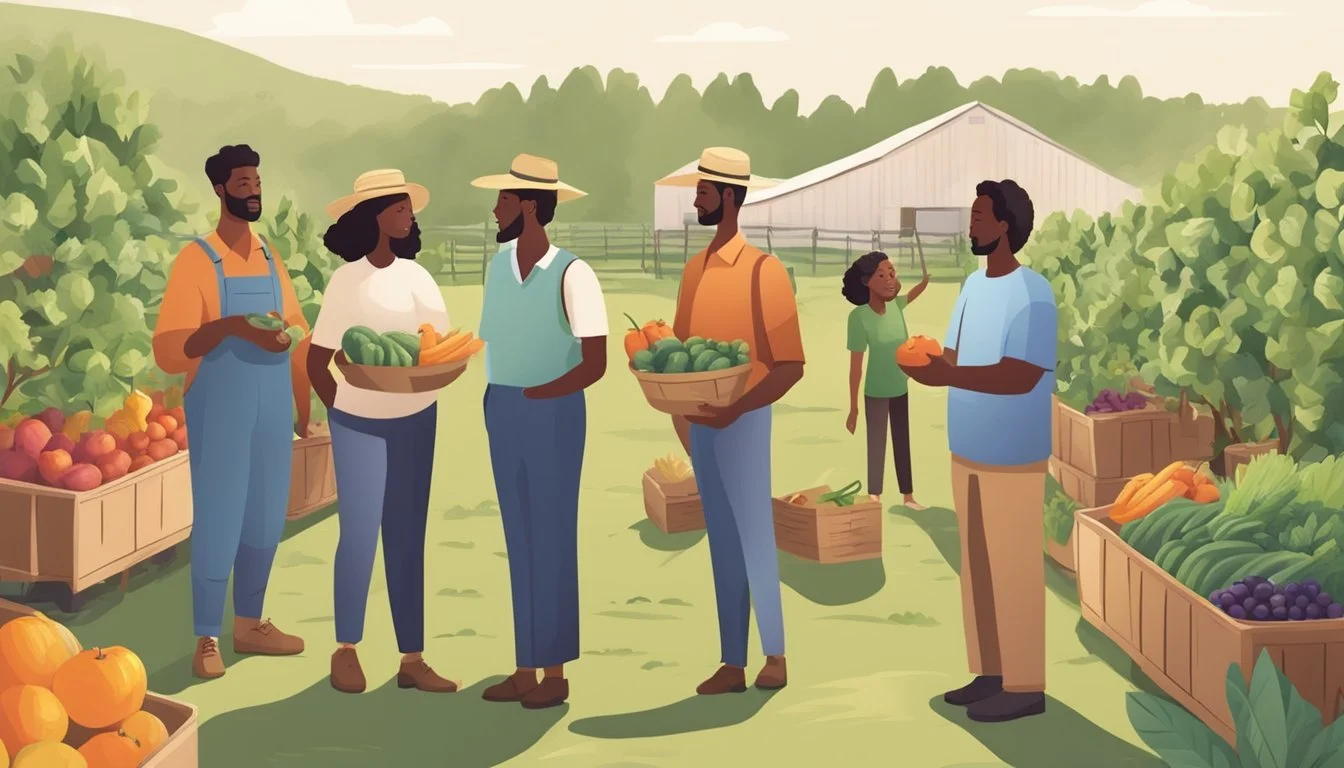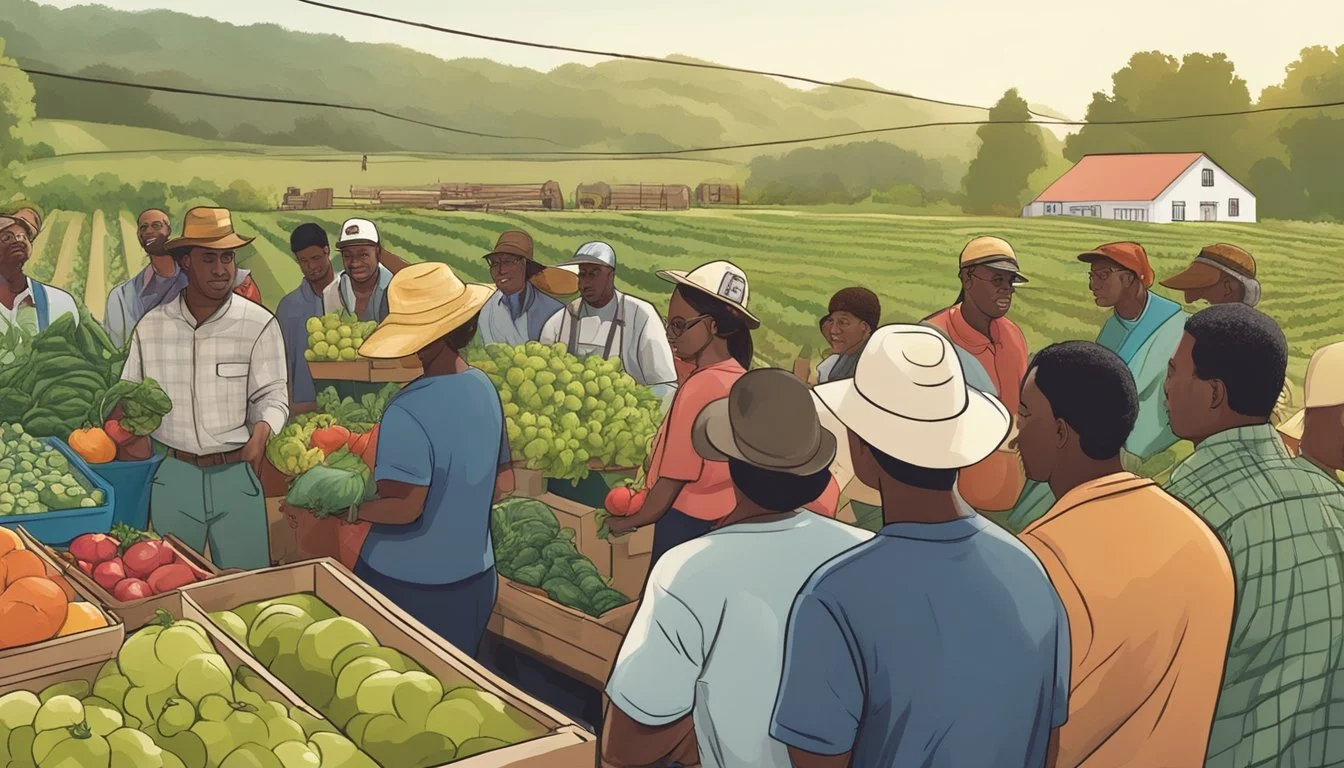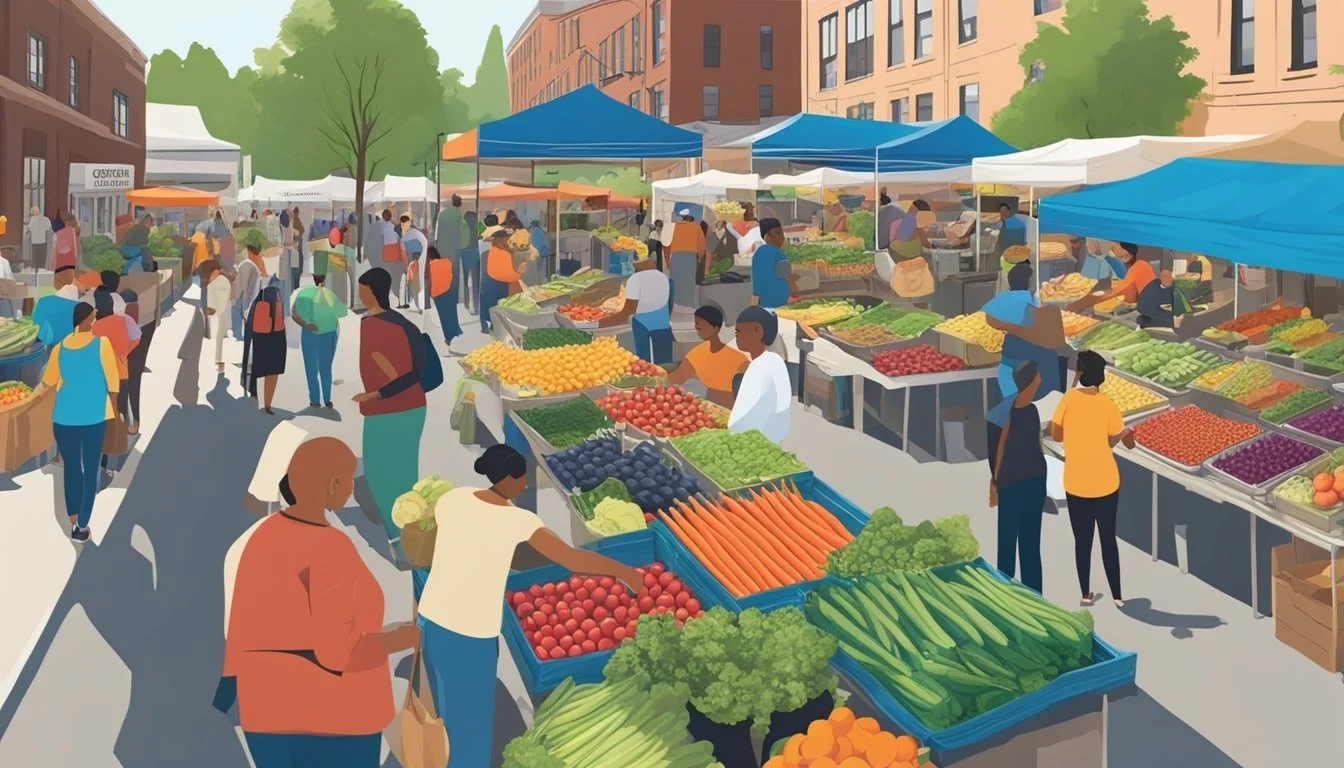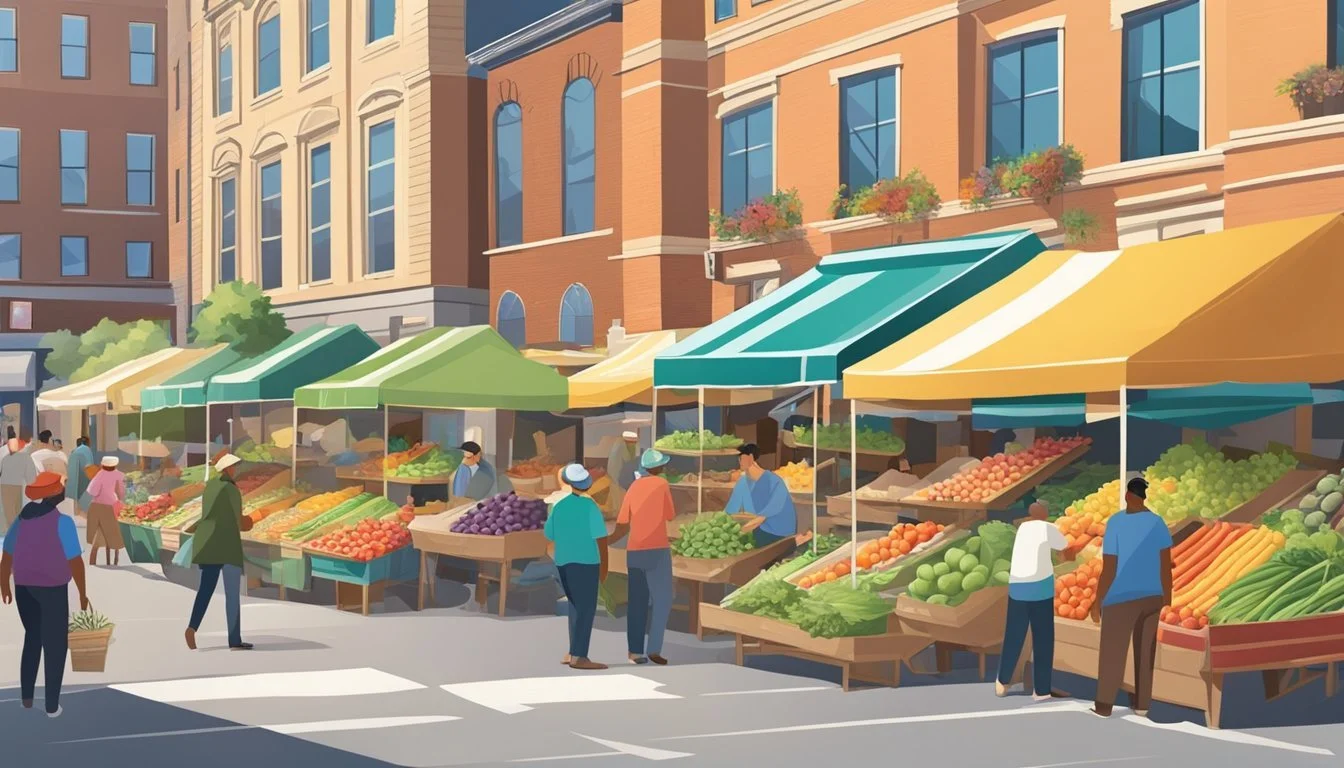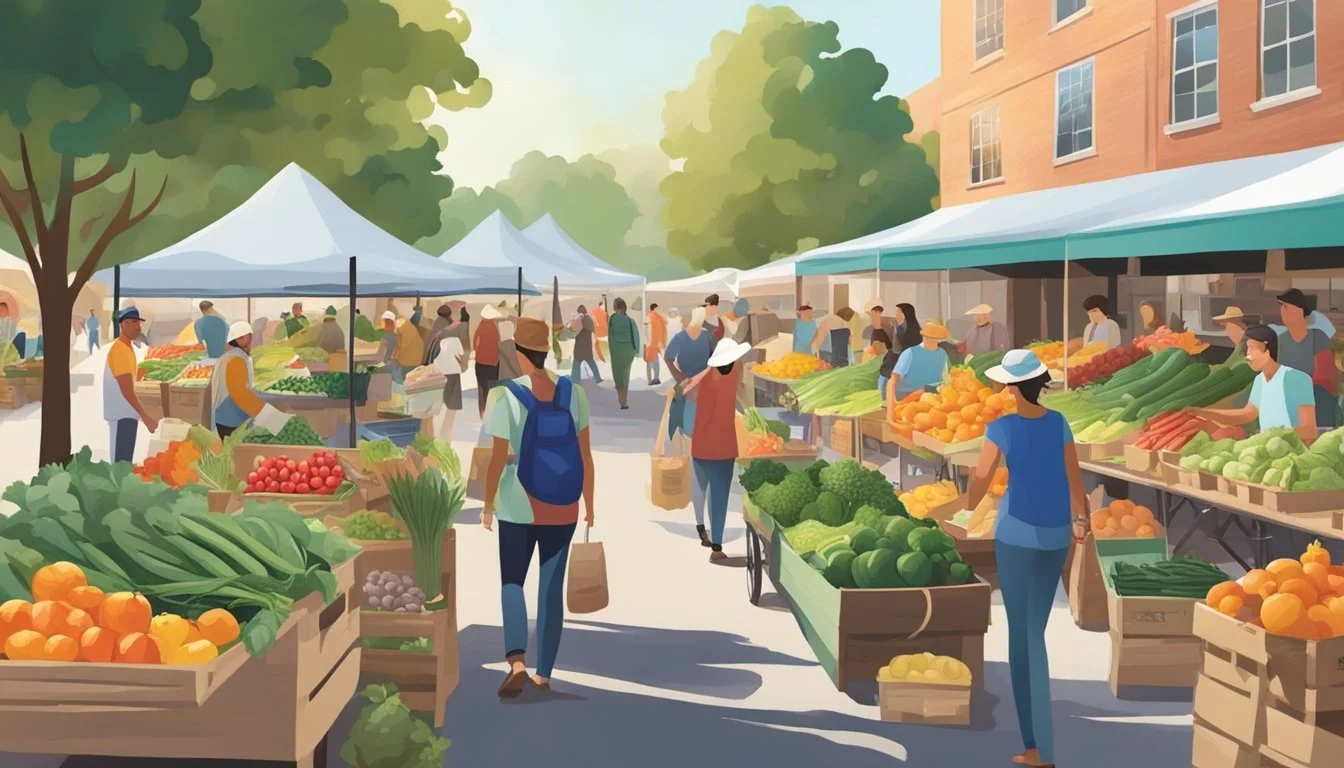Community Supported Agriculture (CSA) in Yonkers, NY
A Guide to Local Produce Subscription
Community Supported Agriculture, commonly known as CSA, has become an integral part of the local food economy in Yonkers, NY, connecting residents with fresh, organic produce directly from the farm. This agricultural model is built on a partnership between local farmers and community members who subscribe to the harvest of a season's crop. The CSA model promotes sustainable farming practices, community engagement, and food education.
In Yonkers and the surrounding Hudson Valley region, residents have a variety of CSA options to choose from, with farms offering shares that typically include a portion of the season's produce each week during the farming season. This direct farm-to-table arrangement benefits both farmers and consumers. Farmers receive upfront capital to manage their operations, while members enjoy the bounty of fresh, locally-grown produce.
By embracing CSA programs, the Yonkers community fosters a closer connection to the source of their food, supports local agriculture, and contributes to the blooming of a more resilient local food system. CSA initiatives in this area play a significant role in promoting healthy eating habits and environmentally responsible living, enhancing the overall wellness and sustainability of the community.
Understanding CSA
In Yonkers, NY, Community Supported Agriculture (CSA) has become a crucial mechanism for supporting local farms and providing residents with fresh, seasonal produce. This section delves into what CSA is and traces its history of development in New York.
CSA Defined
Community Supported Agriculture (CSA) involves a partnership between local farms and community members. Individuals purchase shares of a farm's harvest in advance, which provides the farm with early-season capital. These shareholders typically receive a weekly or bi-weekly delivery of farm-fresh food during the growing season, thus sharing the risks and bounties of farming.
Element of CSA: Description
Shares: A portion of farm produce reserved for members
Seasonality: Produce is often reflective of the growing season
Local: Emphasis on community and local farming
History of CSA in New York
The CSA model didn't originate in New York; however, it has a strong presence in the state since the 1990s. During that time, farmers and consumers sought systems to support sustainable agriculture and enhance local food distribution. CSAs such as Roxbury Farm, which started trucking produce into New York City in 1991, are pioneers among New York's CSA initiatives. This model has been rooted in principles established by influencers like Booker T. Whatley, fostering a resilient local farm community within the Northeast.
Benefits of Participating in a CSA
Participating in a Community Supported Agriculture program offers numerous advantages, from enjoying fresh, locally-sourced produce to supporting sustainable farming practices in the Yonkers community.
Fresh and Organic Produce
Members of a CSA typically enjoy access to produce that is both fresh and certified organic. This means weekly shares of fruits, vegetables, and other farm products are harvested at their peak, providing maximum flavor and nutritional benefits. The proximity of the local farms to Yonkers ensures minimal time from farm to table, preserving the freshness of the produce.
Support for Local Agriculture
By joining a CSA, members invest directly in local farms and, in turn, the financial viability of small farms. This support is crucial in maintaining a robust agrarian community around Yonkers. The direct relationship between consumer and producer empowers local farm owners and encourages the preservation of community supported farms, fostering local economies.
Environmental Benefits
CSAs inherently promote environmental stewardship by operating on principles of sustainability. The practice of providing local food reduces the carbon footprint associated with long-distance transportation. Moreover, the use of organic farming methods minimizes the reliance on chemical pesticides and fertilizers, benefiting the local ecosystem and biodiversity. This sustainable approach reinforces the health of the land for future generations.
CSAs in Yonkers
In Yonkers, NY, residents have the opportunity to engage in Community Supported Agriculture (CSA) programs, which connect them with fresh, local produce and support sustainable farming practices.
List of Yonkers CSAs
Stoneledge Farm LLC: Located in Leeds, NY, Stoneledge Farm offers a CSA program that provides Yonkers residents with a variety of organic produce. It is active and well-regarded in the community for its sustainable farming methods.
How CSAs Work
Community Supported Agriculture (CSA) programs create a partnership where consumers support a local farm by purchasing shares before the growing season and in return receive fresh produce throughout the year.
Membership and Shares
Members sign up for a CSA program by purchasing a share from the local farm. This share represents part of the farm's anticipated harvest. CSA memberships can vary in size with options like a full share suitable for families, or a half share for individuals or smaller households. Some farms also offer specialized winter shares for produce available outside of the traditional growing season.
Seasonal Availability
CSAs are inherently seasonal systems, with the growing season typically spanning from spring through fall. Members can expect a variety of vegetables and fruit that changes as the season progresses. A fall share, for instance, might include pumpkins and winter squash, while spring might focus on leafy greens.
Weekly Box Contents
Each week during the season, members receive a weekly box filled with a portion of the farm's harvest. Boxes may include a range of items from vegetables and fruit to other farm products like eggs, meat, and occasionally mushrooms. The exact contents of the weekly box are dependent on harvest yields and seasonal cycles.
Connecting with CSAs
In Yonkers, NY, residents have the rewarding opportunity to partake in Community Supported Agriculture (CSA), which fosters a strong relationship between local consumers and farmers through a membership-based model. Exploring and enrolling in a CSA can lead to a consistent supply of fresh, locally-grown produce while supporting the agricultural community.
Finding and Choosing a CSA
Individuals interested in joining a CSA should consider several factors to ensure the program aligns with their preferences and needs. The location of pickup points, variety of produce offered, and farming practices such as organic certification are all crucial considerations.
Location and Accessibility: Proximity to CSA drop-off locations can influence convenience. For instance, Yonkers residents may seek pickup spots within their city or in neighboring areas such as Queens where Flushing CSA, supported by the Just Food initiative, operates.
Produce Variety: Most CSAs provide a wealth of fresh vegetables and fruits, exemplified by Stoneledge Farm LLC and Hearty Roots Community Farm, which also offers winter shares including greenhouses greens, roots, and winter squash.
Farming Practices: Identifying whether a CSA follows organic practices, holds certifications, or uses sustainable farming techniques is a key part of the selection process.
Contact and Enrollment
Once a suitable CSA has been identified, individuals should engage directly with the program to discuss membership specifics, share acquisition, and commencement of produce delivery or pickup.
Initial Contact:
Direct Communication: Reach out to the CSA via their preferred contact method, usually found on their website or through local directories.
Community Events: Attending local agricultural events or markets can provide opportunities to meet CSA coordinators and ask questions face-to-face.
Enrollment Steps:
Membership Inquiry: Express interest in becoming a member and request details about available shares, pricing, and enrollment deadlines.
Sign-Up: Complete any necessary forms, agreements, or online registration processes to confirm membership.
Payment: Fulfill payment requirements according to the CSA's schedule, which might include up-front, installment, or flexible options to accommodate different members of the community.
CSA Farm Profiles
In Yonkers, NY, the concept of Community Supported Agriculture (CSA) is thriving with several farms committing to sustainable farming practices and community engagement. Each farm offers CSA memberships that provide the community with fresh and organic produce.
Stoneledge Farm
Stoneledge Farm is an organic vegetable farm located in South Cairo, NY. They are known for offering certified organic produce to members through their CSA program. Stoneledge Farm emphasizes ecological farming methods and offers a diverse selection of vegetables, herbs, and fruits to its CSA members.
Hawthorne Valley Farm
Situated in Ghent, NY, Hawthorne Valley Farm has been serving the community since 1972 as a biodynamic and diversified farm. It runs a CSA program that includes biodynamic and organic vegetables, dairy products, and meat. They aim to foster a connection between the farm and the local community, ensuring access to wholesome and sustainably produced food.
Roxbury Farm
Roxbury Farm, one of the pioneers of the CSA movement in New York, is based in Kinderhook, NY. The farm provides a variety of fresh, certified organic produce to its CSA members in the New York area, including Yonkers. Since its establishment, Roxbury Farm has been dedicated to environmentally responsible farming and building a strong community-food link.
Supporting CSA Operations
Community Supported Agriculture in Yonkers, NY, benefits significantly from a framework of support through various organizations and collaborative efforts. These pivotal entities work together to enhance the productivity and sustainability of local CSA farms.
Organizations and Networks
Several organizations play crucial roles in supporting CSA systems in and around Yonkers, NY. Notably, the Northeast Organic Farming Association of New York (NOFA-NY) offers extensive support to organic farms, including those operating CSAs. They provide certifications, educational resources, and advocacy. Another significant contributor is the Real Organic Project, an initiative that stands to preserve and promote practices of organic farming. Similarly, Just Food is a prominent New York City-based nonprofit that connects communities and local farms with the resources and support they need to thrive.
Partnerships and Collaborations
Strong partnerships and collaborations are fundamental to the success of CSA operations. CSA programs often form partnerships with local businesses and community groups, sometimes operating as limited liability companies (LLCs) to streamline the legal and financial aspects of their operations. For instance, farms may partner with local schools, restaurants, or food banks to distribute their produce directly to the community, fortifying the local food system. Collaborative models can also extend to shared distribution efforts, such as in the case of the Hudson Valley CSA Coalition, a group that supports CSAs through a cohesive network.
Beyond the Produce
Community Supported Agriculture (CSA) initiatives in Yonkers not only offer farm-fresh produce to its members but also extend the benefit of value-added products and educational opportunities, enriching the community's connection with local agriculture.
Value-Added Products
In addition to the bountiful harvest of vegetables and fruits, CSAs often provide an array of value-added products. These products may include:
Honey: Harvested from local apiaries, CSA participants may enjoy the sweet offerings of farm-fresh honey.
Flowers: Many farms cultivate vibrant flowers, contributing to CSA shares or available at farmers' markets, adding aesthetic value to the practical produce.
Products like these enhance the direct relationship between consumers and farmers, often allowing for a deeper understanding of where their goods originate.
Educational Opportunities
Community Supported Agriculture is not solely about consumption; it's also about learning and growing roots in agricultural knowledge. Educational opportunities may involve:
Farm visits: Members can visit the farm to learn more about the agricultural process.
Workshops: Hosted by experienced farmers, these sessions may cover various topics from sustainable farming practices to home gardening tips.
These community engagements foster a well-informed base of CSA members who appreciate the intricacies of local farming and sustainable agriculture.
Conclusion
Community Supported Agriculture (CSA) programs have taken root in Yonkers, NY, fostering a connection between residents and local farmers. These programs enable consumers to receive a variety of farm-fresh products regularly, while also sustaining the local agriculture economy.
CSA in Yonkers:
Promotes organic produce: Ensures residents have access to healthy, organically grown foods.
Strengthens community ties: Encourages collaboration and trust between community members and farmers.
Supports local farmers: Provides financial stability for farmers by guaranteeing a market for their produce.
The impact of CSAs in Yonkers has been tangible, with programs like the one initiated by Groundwork Yonkers successfully connecting residents to their food sources. By purchasing shares in advance from farmers, Groundwork Yonkers has demonstrated a viable model for community-farm partnerships.
It is evident that CSAs represent more than a trend in Yonkers – they are part of a committed effort to enhance sustainable living and community health. As these programs continue to evolve, they will potentially serve as a blueprint for other cities looking to strengthen their local food systems.

